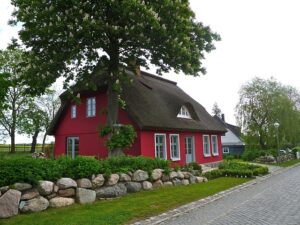Introduction
In the realm of real estate, the term “township” is frequently used, but what exactly does it mean? A township refers to a specific type of land division or administrative unit within a larger geographical area. It plays a significant role in real estate development and property ownership. This article aims to provide a comprehensive understanding of what a township entails and its relevance in the real estate industry.
Defining a Township
A township is a designated area of land that is typically larger than a neighborhood but smaller than a city. It is often found in suburban or rural regions and serves as a distinct administrative unit. Townships can be established by government entities or private developers, and they are characterized by their own set of rules, regulations, and governance structures.
Features and Functions of a Township
Planning and Zoning: One of the key functions of a township is land-use planning and zoning. Townships have the authority to determine how the land within their boundaries can be used. This includes designating areas for residential, commercial, industrial, or recreational purposes. By carefully planning the allocation of land, townships can create cohesive and well-organized communities.
Infrastructure Development: Townships are responsible for the development and maintenance of infrastructure within their boundaries. This includes roads, utilities, parks, and other public amenities. By investing in infrastructure, townships can attract residents and businesses, thereby stimulating economic growth.
Community Services: Townships often provide a range of community services to their residents. These may include schools, healthcare facilities, libraries, and recreational centers. By offering these services, townships aim to enhance the quality of life for their residents and create a sense of community.
Local Governance: Townships have their own local government structure, which may include elected officials such as supervisors or commissioners. These officials are responsible for making decisions that affect the township and its residents. Local governance allows for more localized decision-making and responsiveness to the needs of the community.
Benefits of Living in a Township
Planned Development: Townships are often meticulously planned, with a focus on creating well-designed communities. This can result in aesthetically pleasing neighborhoods, well-maintained public spaces, and a higher overall quality of life.
Amenities and Services: Townships typically offer a wide range of amenities and services within close proximity to residential areas. This can include shopping centers, schools, parks, and recreational facilities. Having these amenities nearby can enhance convenience and accessibility for residents.
Community Spirit: Townships often foster a strong sense of community and belonging. With their own local governance and community services, residents have opportunities to engage with their neighbors and actively participate in shaping the township’s future.
Conclusion
In summary, a township in real estate refers to a designated area of land with its own set of rules, regulations, and governance structures. It plays a crucial role in land-use planning, infrastructure development, and the provision of community services. Living in a township can offer numerous benefits, including planned development, access to amenities and services, and a strong sense of community. Understanding the concept of a township is essential for anyone involved in real estate, whether as a developer, buyer, or resident.
References
– National Association of Towns and Townships: www.natat.org
– U.S. Census Bureau: www.census.gov
– Investopedia: www.investopedia.com













